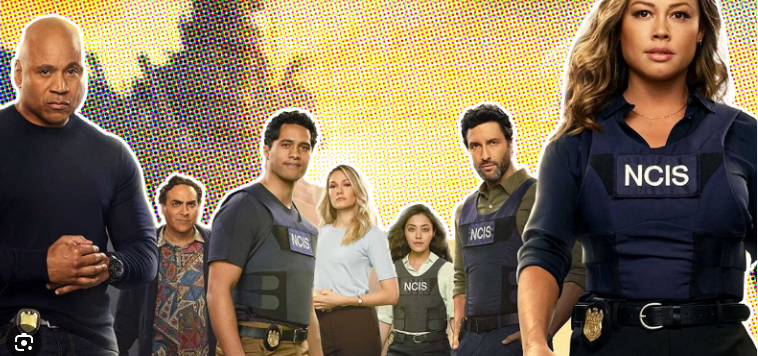Decoding Fandom is a weekly column that dives deep into the world of fan culture and runs on Wednesdays in the Daily Dot’s web_crawlr newsletter. If you want to get this column a day before we publish it, subscribe to web_crawlr, where you’ll get the daily scoop of internet culture delivered straight to your inbox.
While it’s true that more TV shows are being made today than at any point in history, that doesn’t mean it’s any easier for a series to find success. Indeed, one of the most common facets of contemporary television fandom is the threat of cancellation.
Most recently on the chopping block? NCIS: Hawai’i, the fourth spinoff in the NCIS universe. Both fans and the series’ cast and crew found out last month that the show won’t be returning for a fourth season, leading to shock and outrage online.

Marketed as the most diverse series in the franchise, NCIS: Hawai’i is beloved for its representation, particularly of women of color and lesbians. Vanessa Lachey plays Jane Tennant, the first female lead in the NCIS-verse, and the relationship between Kate (Tori Anderson) and Lucy (Yasmine Al-Bustami), known as Kacy, is consistently the most-discussed aspect of the series. There’s a real sense of camaraderie and community among fans, who, adapting the language of the show, refer to themselves as an ohana (or family).
Fans responded to the cancellation news with sadness and anger. Eager for their favorite storylines—particularly the one between Kate and Lucy—to continue, they weren’t willing to accept CBS’ decision. Though the network stated that they canceled the show because of “financials and performance overall,” fans shot down that reasoning by posting info about the show’s solid ratings.
In her book Post-Object Fandom, Rebecca Williams writes about three possible responses to the conclusion of a series: the rejection discourse, the reiteration discourse, and the renegotiation discourse. While they’re quite angry with CBS, NCIS: Hawai’i fans have clearly chosen the reiteration discourse and are using X as a public forum in which to express their enduring attachment to the show and their hope for renewal.

Many fans highlighted the importance of representation while pointing out the often disingenuous way the networks deploy the term. When fans mention representation, it’s to discuss how fictional characters or stories have impacted them personally. When networks or studios reference representation—such as when CBS highlights the diversity of their series—it’s to illustrate the supposed good they’re doing in the world, which, as NCIS: Hawai’i fans will tell you, is more talk than action.
Much of the rhetoric used within the fandom centers on what fans do and do not deserve. “NCIS: Hawai’i doesn’t deserve to end here. Sapphic fans deserve better,” reads the bio for the Save NCIS Hawai’i X account. This language recalls the #LGBTFansDeserveBetter movement from 2016, which began after the death ofLexa, a popular lesbian character on the CW series The 100. Instead of #BuryYourGays, the trending topic in TV today is
The data collected in GLAAD’s annual Where We Are On TV Report supports these anecdotal assumptions about which shows are most at risk of cancellation. They conclude that 36 series featuring LGBTQ characters were canceled during the 2023-2024 season, and that 170 of the 468 LGBTQ characters on TV this year will not return next season.
The NCIS: Hawai’i fandom has not taken this news lying down. Fans created a petition to save the series and are using the #SaveNCISHawaii hashtag to get CBS’ attention. Another group purchased a #SaveNCISHawaii billboard in Times Square.

Some are looking to other fandoms for support and suggestions. On X, one fan wanted to know what “Jedi mind tricks” S.W.A.T. fans used to get CBS to “uncancel” the series on two different occasions. The X account working to #SaveLegendsOfTomorrow, another series prominently featuring queer women, posted the NCIS: Hawai’i petition and acknowledged the crossover between the two fandoms. For now, the fans still have hope things will turn around.
The 2023 strikes reminded us all of the inequality within Hollywood.
Audiences are even less willing to accept the questionable decisions made by studios than they were before.
Using social media as their forum, NCIS: Hawai’i fans are working to lend visibility to their cause, which hinges on the notion of representation as a social good.
As these fans see it, if CBS really cared about representation, they’d put their money behind a show that espouses those ideals instead of ordering more tired spinoffs.
